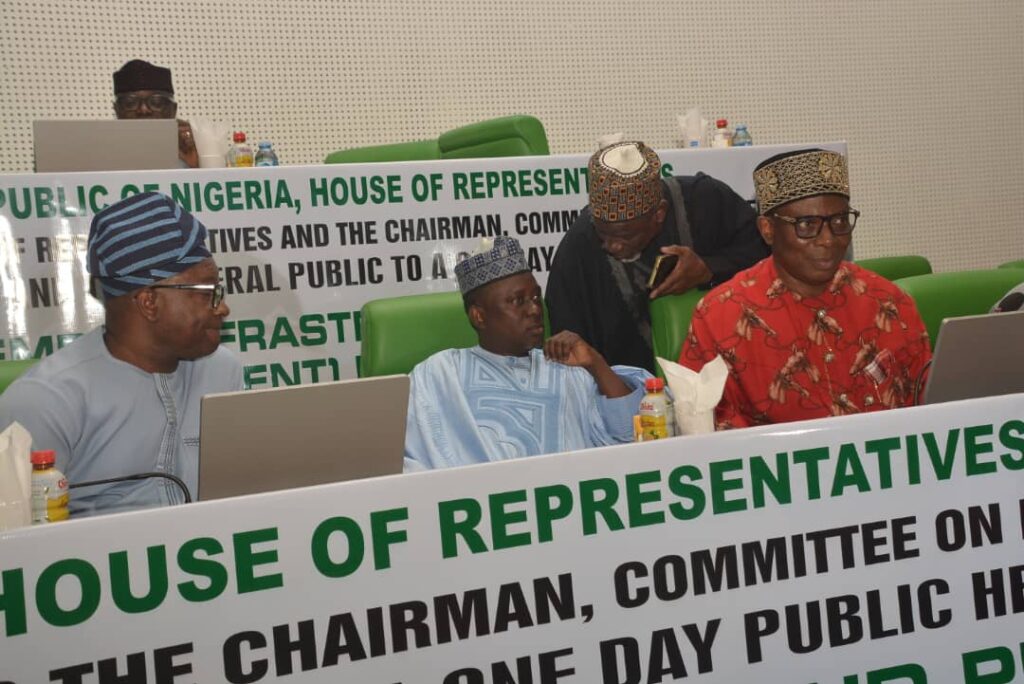Speaker of the House of Representatives, Tajudeen Abbas on Monday called for the National Assembly to assume full control of its infrastructure from the Federal Capital Development Authority (FCDA) to strengthen democratic governance and uphold the principle of separation of powers.
He disclosed this at a public hearing on a bill to establish the National Assembly Infrastructure and Property Development Agency in Abuja.
Represented by the Minority Whip, Ali Isa, the speaker described the legislation as timely and necessary to safeguard and maintain the integrity of the National Assembly Complex and its assets nationwide.
“This bill does not aim to replace the existing Directorate of Estate and Works,” he clarified. “Rather, it rightly transfers responsibilities currently handled by the FCDA to the National Assembly, where they belong. This ensures that maintenance and development receive the priority and professionalism they deserve.”
He lamented the consequences of external control over the years, including delayed repairs, safety concerns, and inefficiencies. According to him, a dedicated agency would introduce long-term planning, preventive maintenance, and transparent procurement — leading to cost savings and improved work conditions.
Abbas emphasised that the new agency would oversee all aspects of the National Assembly’s physical infrastructure — from structural maintenance and mechanical services to liaison offices and the preservation of architectural heritage. Its scope would cover institutions such as the National Institute for Legislative and Democratic Studies (NILDS), the National Assembly Service Commission, and the Library Trust Fund.
He cited international precedents, noting that in the United States, the Architect of the Capitol has managed the Capitol Complex since the 18th century, while the UK Parliament operates through the Parliamentary Estates Agency. “These models reinforce the idea that a legislature in control of its facilities is stronger and more independent,” he said.
The proposed agency would have a clearly defined governance structure, including presiding officers, committee chairmen, the Clerk to the National Assembly, and relevant professionals. It would report regularly to the Senate and House Committees on Services to ensure transparency and alignment with legislative priorities.
“More than just infrastructure, this bill reflects our commitment to accountability, efficiency, and excellence,” the Speaker added. “A National Assembly that manages its facilities well is better equipped to serve the people.”
Also speaking, the Clerk to the National Assembly, Barr. Kamoru Ogunlana, backed the bill, but pointed out that the FCDA currently has statutory responsibility for public infrastructure in the FCT, including the National Assembly and Supreme Court complexes. He said this arrangement is detrimental to democratic practice.
He revealed that while the Abuja complex remains under the FCT Minister, the National Assembly’s Lagos facility is under the Office of the Secretary to the Government of the Federation — a situation he described as unacceptable. However, he cautioned that creating a new agency could increase the cost of governance, and suggested that its functions be housed within the existing Estate and Works Directorate.
Chairman of the House Committee handling the bill, Hon. Amos Daniel, described the hearing as a milestone in the legislature’s quest for true autonomy. He said it was inappropriate for the FCDA — an executive agency — to continue managing infrastructure for the National Assembly, a co-equal arm of government.
“This bill seeks to correct that anomaly,” he said. “It will not only strengthen legislative independence but also enhance operational efficiency and align Nigeria with global best practices.”
One of the bill’s sponsors, Hon. Daniel Asama Ago, explained that the proposed agency would be tasked with the operation, development, maintenance, and preservation of the National Assembly’s physical assets across the country. He described the current arrangement as a violation of the doctrine of separation of powers.
“The agency will manage all buildings and facilities — from offices, chambers, and garages to health and fitness centres — ensuring they are efficiently maintained and contribute to a productive legislative process,” he added.















